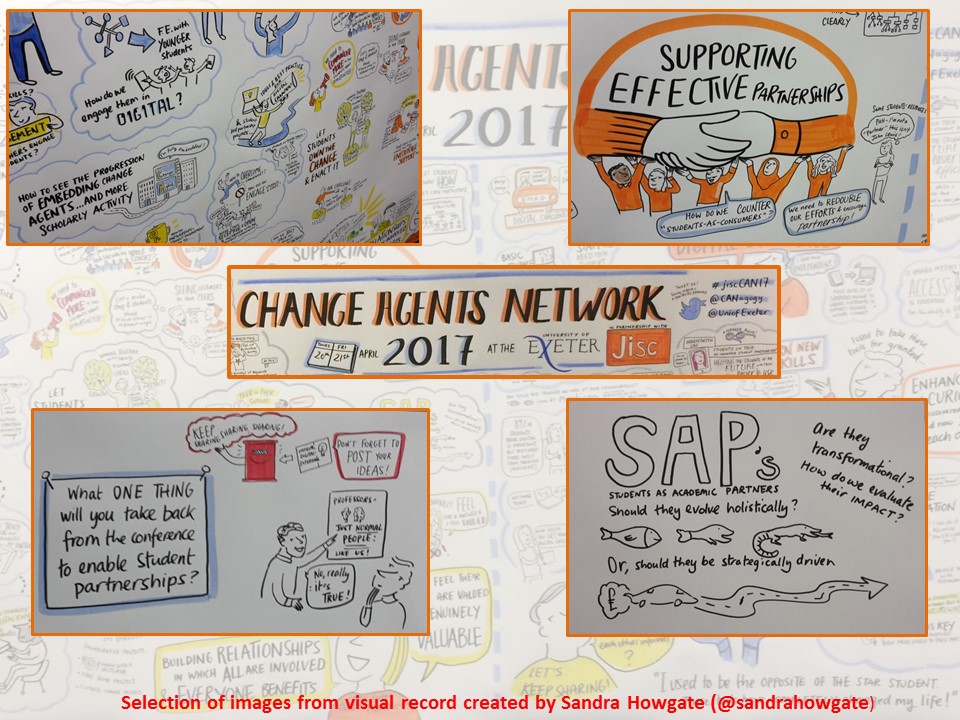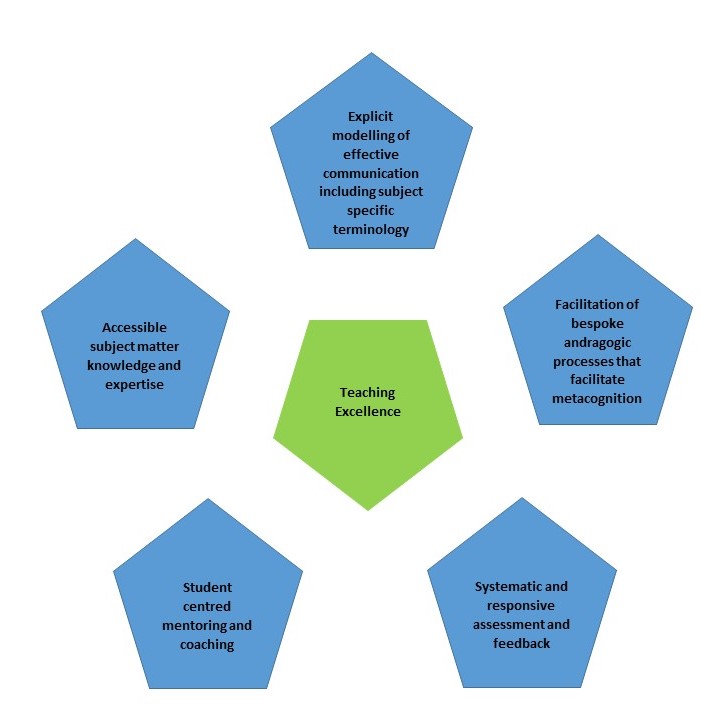Karen Blackmore (Academic Lead for SAP), Carolyn Nisbet (Project Manager), Sophie Pearce (Final Year Physical Geography Student)
2017 has seen 24 projects selected for inclusion in the Students as Academic Partners (SAP) scheme. As the scheme continues to grow, we reflect on one highly successful project which was chosen to showcase the UW SAP scheme at the JISC Change Agents Network Conference at the University of Exeter in April 2017.

The SAP project was developed between Ian Maddock (Professor in River Science) and Sophie Pearce (Level 6 BSc Physical Geography Undergraduate student) and aimed to create resources which included a lecture, a taster session of a drone flying and a practical session introducing Structure from Motion photogrammetry software. The overall aspiration of the project was to integrate the practical sessions into a second year module GEOG2120 Mountain Environments, Landscapes and Hazards, as well use them to bolster recruitment on interview days.
In addition to developing an innovative and technically interesting resource for both the course and interview days, the project also provided an excellent example of how staff/student collaboration within the SAP scheme can enhance the student experience.
Karen, Sophie and Carolyn worked together to decide how they were going to use the project to reflect on the key outcomes of the overall SAP experience. The resultant co-presented workshop allowed them to both showcase our SAP scheme as a whole, and gain valuable insights from colleagues in HE who were also working collaboratively with students. We used the model below (Blackmore, 2016) to highlight teaching and learning activity within the scheme, which we believe has high impact.
High Impact Pedagogies Supporting Teaching Excellence Reflexion (HIPSTER) model (Blackmore, 2016)

Using the HIPSTER model as a starting point (see co-written reflective piece for model rationale), we were able to engage in a wide-ranging and instructive conversation with conference participants, and now have further insights into how to continue to enhance the SAP scheme for both students and staff.
Reflecting on her experience of the conference, Sophie says:
“Through attending this conference, I was given the opportunity to not only present the project, but also attend other sessions which allowed the exploration of other learning and teaching methods and the wider impact that SAP projects have on student experience…
I believe that one of the core principles of the SAP project scheme is to give students the opportunity to develop their expertise… I have gained extremely valuable skills regarding public speaking, preparation, planning and organisation, all of which have made me a much more confident speaker as proven within recent interviews. The project itself has also enlightened the fact that not all undergraduate lectures can be created relatively quickly, but need a lot of time to create valuable resources which will ultimately need changing and editing over time.
Through being a part of this project my personal knowledge regarding the use of drones has been improved and I have become very interested in the application of drones within geographical research. It is predominantly because of my involvement with this project and inspiration from Ian that I am now enrolled to undertake a PhD project which will be evaluating the use of drones for monitoring flood flow measurements at the University of Worcester.
The SAP project overall has been an extremely positive experience for me, one that started with a seemingly ‘meaningless’ conversation on a fieldtrip, to a dedicated project which has not only enhanced the curriculum but provided me with so many opportunities that I couldn’t have imagined experiencing when I first applied to University three years ago. It is without doubt, that these opportunities would not have been possible had it not been for the SAP project scheme and working with such an encouraging, supportive and motivating members of university staff. “
Reflecting on her experience Karen says:
“Working with a student partner to create and deliver a workshop was a very interesting process. Talking to Sophie gave me a much deeper awareness of how students view curriculum development. During the conference we watched and discussed several presentations from other university partnerships together, and it struck me how valuable it was to view the material through a student lens. We could see several opportunities for developing our practice at UW as a result of looking at other partnership work.”
For those interested in a deeper exposition of this, a short reflective account of the conference and further information on the HIPSTER model is available as a co-authored document.
For additional information on the SAP scheme, please contact Carolyn Nisbet (Project Manager) or Karen Blackmore (Academic lead).
